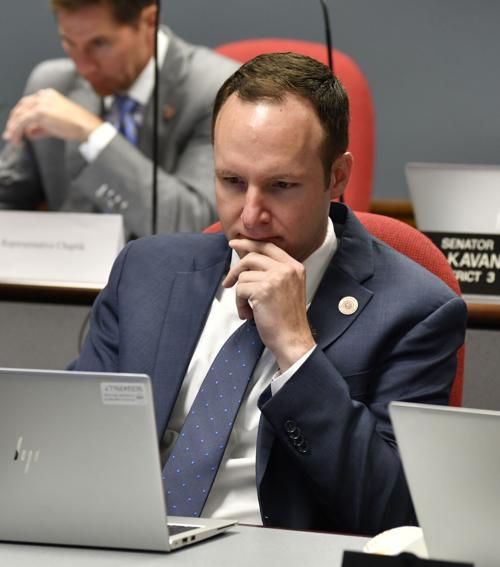PHOENIX — Schools whose administrators don’t impose discipline at least three out of every four times requested by a teacher would lose academic standings under the terms of legislation given preliminary approval Wednesday by the state House.
SB 1459 is needed to ensure that schools remain a proper environment for education, said Rep. Matt Gress, R-Phoenix.
“As a former school teacher, I can tell you, first-hand, that the success of a teacher is tied to the ability to control and maintain order in the class,’’ he said.
What the legislation does, Gress said, is preclude any policies that discourage teachers from sending disciplinary referrals to the office.
“And when these disciplinary referrals are sent to the office, teachers should have an expectation that administrators will take action on those referrals,’’ he said.
“I’ve heard from too many teachers where they write up referrals and nothing is done,’’ Gress continued. “And many kids are able to run roughshod all over the school and distracting the learning from too many kids that are wanting to get an education.’’
The enforcement mechanism behind all this would require the state Board of Education to lower a school’s letter grade if it did not implement disciplinary actions in at least 75% of the total number of student discipline referrals submitted by teachers in a single year. Only if a school had a “reasonable justification’’ for falling below that figure would there be no penalty.
The voice vote on SB 1459 came over the objections of several Democrats who said this is an issue that is best dealt with by each local school board. Bringing in the state Board of Education, they said, is inappropriate.
But Rep. Nancy Gutierrez, D-Tucson, said she sees a darker motive in the proposal which already has cleared the Senate.
She pointed out that each school gets a rating of A through F, one that is based on academic performance and year-over-year improvement. Parents can use those ratings to determine whether to send a child there.
“It is my opinion that this bill has been put forward in order not to support teachers but in order to make it so that there’s an easier way to have more public schools with D and F grades to support some of the rhetoric that we hear that public schools are failing our students,’’ Gutierrez said, an argument that has been used by some to support the use of tax dollars to let parents send their children to private or parochial schools.
The issue of student discipline gained wider attention last year because of calls by state schools chief Tom Horne.
He said that he had met with principals at high-performing high schools across the state to see what advice they could offer. And Horne said the first thing they mentioned was getting a handle on discipline, with the need to sometimes take tough actions like suspensions and expulsions.
That, he said, got the message across to other students that there were limits on behavior.
“I do appreciate that Superintendent Horne is listening to teachers,’’ said Rep. Jennifer Pawlik, D-Chandler, a former school teacher. She said it is clear that it isn’t just salaries that has resulted in a high turnover of people in the profession.
“A lot of people are leaving right now because classroom behaviors have accelerated,’’ Pawlik said. “And it’s really hard to be a teacher right now.’’
She said, though, that the answer is not to put in “punitive measures’’ like reducing the academic grade of a school.
“We need to consider class size,’’ Pawlik said.
“We need to consider, are our new teachers given mentors,’’ she continued. “Do we have appropriate staffing of our schools that includes mental health providers, that includes paraprofessionals.’’
Rep. John Seaman, D-Casa Grande, said the legislation to put the issue of policing school disciplinary policies in the hands of the state Board of Education is overkill.
He said if a teacher is having an issue with a principal not supporting a discipline recommendation, the next step should be to go to the local school board. And Seaman, who has been a teacher and a principal – and a former Mohave County school superintendent — said it is then up the the local board to “talk to the administrator and make change in their philosophy.”
But Gress, also a former teacher and school board member, said what’s in the legislation is necessary.
“If you want to talk about supporting teachers and protecting them in their profession, this bill is it,’’ he told colleagues. “We stand by our teachers to say that you have the right to maintain order in your classroom and that when appropriate discipline is necessary school administrators need to follow suit.’’
The measure needs a final roll-call vote in the House. It then needs to be reconciled with a slightly different version that already has been approved by the Senate.





